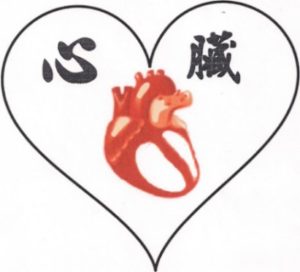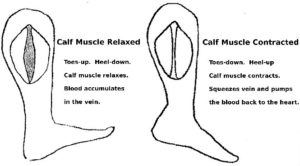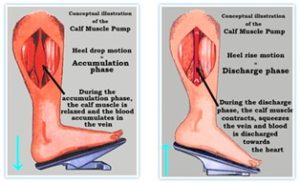The essential steps to preventing heart disease are exercise accompanied with eating right, sleeping right and thinking right. Exercise helps to release the ribcage muscles and to provide adequate space for the organs. Optimizing organ lubrication and oxygenation is one of the fundamental ways to remove bacteria, viruses, and toxins, contributing to better function and health for all organs, especially for the vital heart.
The benefit of the magical art of Tai Chi Chuan for heart diseases is not magic. It is simply a matter of relaxing the ribcage muscles as the arms float up and the elbows move out slightly to keep the armpits open, which enlarges the inner volume of the torso. This helps the organs work effectively due to the increased space of the chest cavity. At the same time, deep breathing gives us sufficient oxygen in the blood and removes carbon dioxide from the body, promoting our longevity with excellent health. This is the prime objective of the slow motion of the movements.
Synchronizing the soft slow movements with the deep diaphragmatic breathing is one of the best preventers of heart disease. Exhalation calms the nerves and relieves muscular tension. When the ribcage muscles are released, the upper arms are floated upward and armpits are lightly opened. The result is an increase in the volume of space inside the torso, which give the organs more room to function optimally.
This deep diaphragmatic breathing brings more oxygen into the lungs than normal breathing. The more oxygenated blood from the heart increases productivity of the immune system, which makes it easier for the body to detoxify. To keep the heart working properly is our concern.
The heart is the central hub of the organs, transporting oxygen-enriched blood (氣血) throughout the body. All of the major components of fitness, health and life itself are dependent on the action and function of the heart. The organs of the body depend upon the heart in order to function properly. Every organ tissue and cell in the body relies on the blood that is pumped by the heart to work at full capacity.
While emotional stress is a natural part of life, the excessive and prolonged worry, fear and sadness associated with stress is very harmful. Stress leads our ribcage muscles to contract inward. It drives the diaphragm upward and drops the arms in against the ribcage. This reduces the inner volume of the torso, which results in poor circulation for the organs, potentially causing strain on the heart itself.
An underproductive heart reduces the transport of oxygen and nutrients to the organs of the body and reduces the elimination of wastes, toxins and carbon dioxide out of the body. This inevitably leads to tissue toxicity and organ failure. It results in a series of heart-killing diseases.
Heart disease is the leading cause of death in the US, affecting nearly 2,000 deaths each day. Every year about 720,000 Americans have a heart attack. Of these, 515,000 are a first heart attack and 205,000 happen in people who have already had a heart attack. A major cause of heart disease is excessive stress to the organs. Lack of space and poor circulation of the heart causes diseases.
The importance of exercise in the prevention of heart disease is repeatedly verified by experts in the field. For example, the CDC Division for Heart Disease and Stroke Prevention (DHDSP) includes in its summary of risk factors and solutions that the Surgeon General recommends adults engage in exercise for 2 hours and 30 minutes weekly. The Ohio State University Medical Center includes fitness as a way of helping to prevent heart disease. Exercise is a nature’s panacea, more powerful than any drugs in its ability to restore and rejuvenate the human heart organ and organs.
Daily exercise is crucial to the heart. Researchers have concluded that exercise is a superior way to keep our heart healthy, specifying that frequent and gentle exercise is more beneficial than shorter, more intense and more strenuous exercise. Exercise helps to release the over-contracted muscles in the body, keeping everything running efficiently and effectively.
The slow motion of Tai Chi Chuan is highly recommended by physicians. The slow movements soothe the nervous system and relieve the unhealthy preoccupation with worry, fear and sadness. The ribcage muscles release to increase the volume of the torso, giving more space to optimize the working condition of all organs.
Maximizing the volume of space in the torso promotes better function, allowing full inflation and deflation of the lungs. At the same time, the toes press against the floor and the fingers push against the resistance of air to create an additional forceful energy flow in the body. This creates a dynamic “jet-stream” wave effect within the torso which flushes out any contamination of the organs. It is similar to the water-jet in a dishwasher which rinses off the dirt from the dishes, making them like new and ready for reuse.
This applies to the brain cells as well. Dr. Maiken Nedergaar, a prominent neuroscientist quoted in “The Power of Sleep” (Alice Prank, time Magazine, 9-11-14), explains how changes in the brain cells when we sleep make more room for the brain and spinal cord’s fluid to slosh back and forth between them. “It’s like a dishwasher that keeps flushing through to wash the dirt away,” she states.
The movements of Tai Chi Chuan help to return blood to the heart from the legs. When we step down slowly and place the foot softly enough that the calf-muscles are relaxed, blood accumulates in the lower part of the leg. When we gradually shift the weight from the heel to the toes and press the toes to the ground, the calf-muscles pump blood back to the heart, increasing the cardiac blood supply.
This additional blood pumping of the calf muscles to return the blood to the heart is important to us. According to research, “It takes one easy heartbeat to pump the blood from the heart to the lower legs. However, it requires several strong heartbeats to force the blood back up to the heart.” The mechanism of foot stepping and releasing in Tai Chi Chuan is significant in that blood is returned to the heart, while enhancing the circulation in the legs. The calf muscle pump is referred to as the body’s secondary heart.
Medical doctors recommend that airline passengers stand up and walk around the plane during long flights. It promotes better blood flow in the legs as well as healthier circulation for the organs in the torso. The restricted seats in modern commercial airlines restrain the arms against the ribcage, which reduces the volume within the torso and compresses organs too close together. Therefore, the heart is unable to function normally.
Good health relies upon the organs of the body. If the organs are healthy and strong, sickness and diseases are minimized. We should not allow stress to reduce the internal volume of the torso, which constricts the working capabilities of the organs and causes the heart to function inadequately.
Stress is not always bad. We need the stress of anxieties to give us a push in our lives. Positive stress is bursting with life energy. There are many successful martial artists, sports competitors and entertainers who know how to turn stress into “high energy” performances. When harnessed, stress can indeed work to our advantage. The drive to success is the feeling from the conscious heart that motivates our energy to accomplish our desires.
On the other hand, a negative mood of fear, worry and sadness causes muscles to contract. The ribcage muscles contract inward and pull the diaphragm up while lowering the upper arms into the ribcage. This reduces the space between the organs in the torso, which leads to poor circulation and develops hazardous conditions that can result in serious heart diseases.
Mother Nature has provided us with a rejuvenating metabolic process to renew the organs in our body. Our torso is like the compartment of a dishwasher and the organs are like reusable dishes. We must clean the organs as often as possible even before the toxins build up. Frequent cleansing of the organs to keep them in excellent shape is our priority.
Happy people are healthier and live longer than unhappy people. When we are happy, the ribcage-muscles are released. When we are sad, worried or unhappy the ribcage muscles are contracted inward, and the insufficient inner space of the torso interferes with the ability of the organs to function normally.
The muscle-free movements of Tai Chi Chuan are generated by releasing and energizing the flow of energy, creating a forceful energetic wave in the body, while keeping muscles loose especially around the arteries, which widens and expands the blood vessels. Resulting in a steady stream of nutrients and oxygen-enriched blood are running through the entire vascular system. This powerful inner energy flow goes far beyond organ cleansing it helps purify everything in the body.
The relaxation of the rib-muscles is the best care for the organs, due to their ability to maximize the inner volume of the torso. This facilitates the cleaning the organs to be restored their working capabilities, and helps to keep vital heart organ in tip-top shape.
The concept of heart diseases prevention has its origin in the insight of my teacher, world-known Grandmaster Prof. Cheng Man-Ching; whose perceptive thought was this: “The organs of cats and dogs are healthier than humans, because their organs are loosely hanging inside the body as they walk around. This helps to lubricate and oxygenate their organs to keep them healthy, in contrast with unhealthy human organs which collide with each other within the body most of the time.”
The information I have accumulated and evaluated from my daily practice with students for the past 60 years. That leads me into this positive idea: the organ cleansing is the basis of healthy maintenance. The analogy of “organ-cleaning like dish-washing” has been in my mind for years.
We can imagine that, if the body has not been bathed for a long period of time, serious skin disease will be inevitable. The flowing energy of Tai Chi exercise within the body resembles an internal bath. It cleanses away the bacteria, viruses, and toxins from organs and cells to maintain health and functionality.
This article is part of my lifelong obligation to Tai Chi followers. The internal exercise of Tai Chi Chuan is like inner body cleansing. Frequent cleansing of the organs, cells, arteries, veins and tissues in the body is of vital importance to our heart health. The cleansing of Tai Chi movement may also help to prevent kidney and liver disease, as well as cancer. It definitely helps to minimize various other sicknesses, diseases and stress.
Daily practice of Tai Chi Chuan with a strong feeling of commitment from heart and mind creates the flow of energy/chi and oxygen-enriched blood to surge throughout the body, keeping the doctors away. “Diligently practicing this slow motion of the movements every day is very helpful in relieving the overload of work on physicians and staffs in the hospital.”



ASK WELL- NEW YORK TIMES
Ask Well: Tai Chi and Heart Disease By RONI CARYN RABIN
JANUARY 13, 2016 6:00 AM January 13, 2016 6:00 am 8 Comments
Q
Does tai chi help reduce the risk of heart disease?
A
Like other forms of physical activity, tai chi may be an effective method for helping to reduce the risk of heart disease. The mind-body practice, characterized by gentle movement and deep breathing, offers a nontraditional form of exercise that may appeal particularly to elderly or frail individuals and those who “get bored at the gym,” said Alona D. Angosta, who wrote a review of the research on tai chi.
Although the number of tai chi trials is limited, several have shown that tai chi can reduce certain cardiovascular risk factors, including reducing levels of total cholesterol and triglycerides, increasing levels of “good” HDL cholesterol and slowing heart rate.
There is also quite a bit of evidence to suggest the practice can improve blood pressure. Harvard doctors who conducted a systematic review of the medical literature in 2008 found that 22 of 26 studies reported reductions in blood pressure among participants who practiced tai chi.
One 1996 trial that randomly assigned 126 heart attack survivors to either a tai chi, an aerobic exercise or a non-exercise support group for eight weeks found improvements in both diastolic and systolic blood pressure (the top and bottom numbers) only in the tai chi group. Participants were also more likely to stick with the tai chi program over time.
Researchers say that more studies would be helpful. Many of the trials that have been done are small, prescribe different regimens and different types of tai chi, and follow people for varying amounts of time. Those limitations make it hard to draw firm conclusions about the effects.